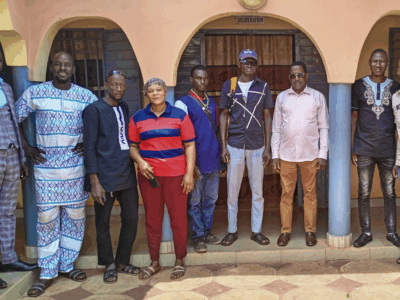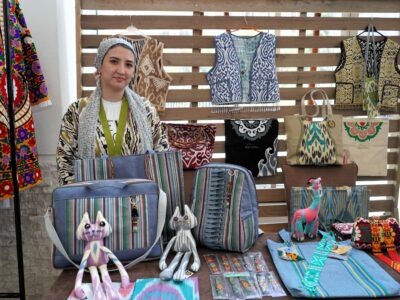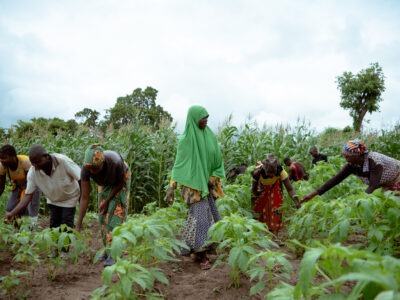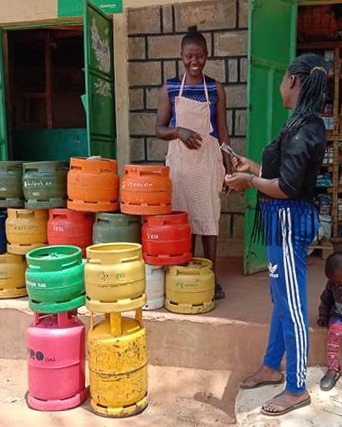
According to a 2014 UN Women report, studies show that girls who experience poverty are 2.5 times more likely to marry in childhood than those living in the wealthiest quintile. This was the situation that 26-year-old Josephine Akai, of Isiolo County, Kenya, found herself in. Following a challenging childhood marred by poverty, Josephine married at the age of 15 hoping that she would break the cycle of poverty and be able to live a comfortable life, but that was not the case.
Isiolo County experiences a poverty level of 51.9 percent, according to a 2018 Kenya National Bureau of Statistics poverty report. This places women at a greater disadvantage than men, as evidenced by a 2018 World Bank report that found Kenyan women are more likely to live in poor households than men during their mid-20s to 50s.
For Josephine and her family, life proved challenging. “I used to go and look for work as a temporary housecleaner and would — on a good day — make Ksh. 300,” she said. “At some time, my husband would seek work at the riverbanks as a sand harvester. Some days, we would get money for food and rent, but many days we did not. After many years and due to these hardships, my husband sought solace in alcohol, leaving me with the sole responsibility of taking care of our growing family.”
Creating Rural Entrepreneurs
As the sole provider for the family, Josephine sought different ways to earn a living. It was during this time, in 2018, that she came across the USAID-funded Feed the Future Kenya Livestock Market Systems Activity. Through the Rural Entrepreneur Access Project, implemented by the BOMA Project, Josephine began her journey into the world of business.
“[The Activity] gave us financial and life skills training from [the BOMA Project] mentors. The 18-month training covered supply and demand, profit and pricing, record keeping, marketing, savings, borrowing, lending, planning for long-term expenses, investing, and strategies for sustaining the business. Life skills sessions included household decision making, the importance of educating children (especially girls), family planning, and the rights of women under the Kenya constitution.”
–Josephine Akai, Oldonyiro, Isiolo county
During the training, the women formed groups of three and received grants worth Ksh. 20,000 (US$200) to start a business. “Together with my group members, we started a convenience store in the market, where we would not only sell groceries and consumables but also grains and goats,” Josephine said. During this period, mentors from the Activity visited participants to help them navigate any challenges they encountered. After six months, Josephine’s group received another grant of Ksh. 10,000 (US$100) grant to boost their business. The convenience store continued to grow, and, as a result, Josephine was able to ensure a small but steady stream of income for her household.
Access Loans to Grow Small Businesses
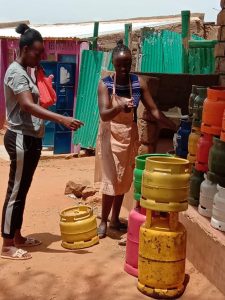
As Josephine’s business continued to grow and prosper, her group and six others came together and formed a savings group. The savings group required all members to contribute Ksh. 1,500 (US$15) to start, followed by Ksh. 400 (US$4) monthly. Josephine and other members created a constitution for the group. They mutually agreed that group members could take out loans in times of need and pay them back after a stipulated number of days with a small amount of interest.
Members like Josephine decided to use the loans to venture into new business areas. Through mentoring sessions, Josephine learned the importance of pursuing a “blue ocean” business strategy, in which one enters sectors that are not characterized by a high degree of competition. This sparked an idea. “I had noticed that there weren’t many people selling liquid petroleum gas cylinders in the area,” Josephine said. “So, I decided to take a loan and bought 10 cylinders. The demand was high, and people purchased them quickly. This enabled me to restock, and I even got different-sized cylinders that would serve more people.”
Finding a Niche in the COVID-19 Economy
When COVID-19 struck the area, gas suppliers would not deliver to Josephine’s ward, and, because she was already established, Josephine’s venture thrived. “During this time, when people could not travel to the main town to get gas, I was able to supply to them,” she said. “This enabled me to pay back the loan I had taken out and scale up even further to not only provide cylinders but other things, such as grills and burners.” At the same time, her husband joined her in the business by offering transportation services for a fee, and this increased their income. With a current stock of more than 30 cylinders and no debt, Josephine is supporting her family.
“Thanks to these businesses, I have built my very own house, where we are living with my family, and we do not have to pay rent anymore. We no longer go hungry, as we have enough money for food. I have started saving for my children’s secondary school, and I know I will be able to have enough to enable them to get a proper education.”
–JOSEPHINE AKAI, OLDONYIRO, ISIOLO COUNTY
The Activity has trained 1,620 women in Isiolo County and 5,460 women across Marsabit, Garissa, Turkana, and Wajir counties. There are currently 85 savings groups in Isiolo and 251 across the other four counties in which the Activity operates. During the pandemic, the Activity continued to help the Rural Entrepreneur Access Project groups navigate the impacts of lockdown. So far, 914 groups have received a business stimulus of Ksh. 10,000 (US$100), and, by the end of March 2021, 1,690 groups will have received the recovery grant.
About the Activity
The Feed the Future Kenya Livestock Market Systems Activity is a USAID-funded program implemented by ACDI/VOCA, in coordination with partners Mercy Corps, Smart Regional Consultants, and the BOMA Project. Under the Activity, the Rural Entrepreneur Access Project builds the resiliency of women living in extreme poverty, so that they may survive shocks, such as drought, and adapt to a changing climate. Through a sequence of interventions, the Rural Entrepreneur Access Project helps women start small businesses in their rural communities. With a sustainable income, increased assets, and committed savings, women can feed their children, pay for school fees and medical care, and invest in their families for long-term stability.
Learn more about our work in Kenya.

